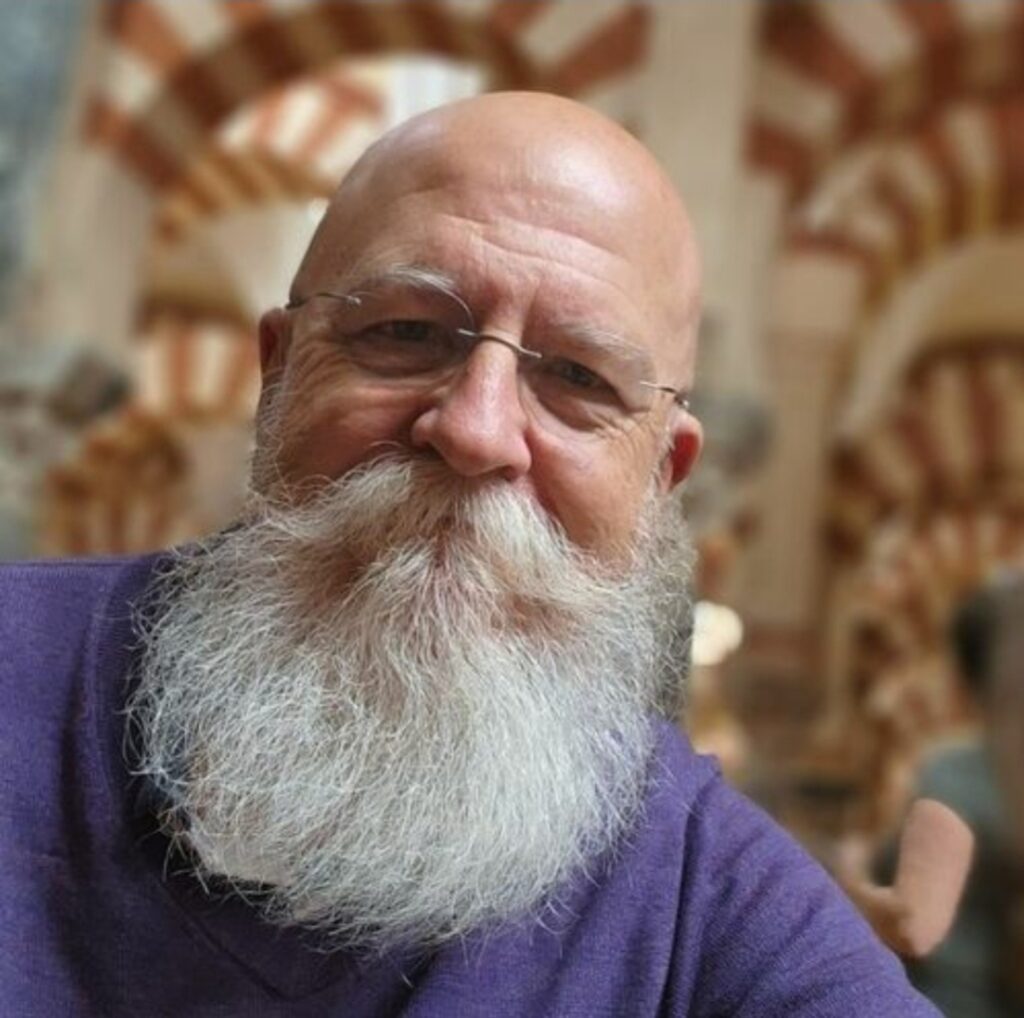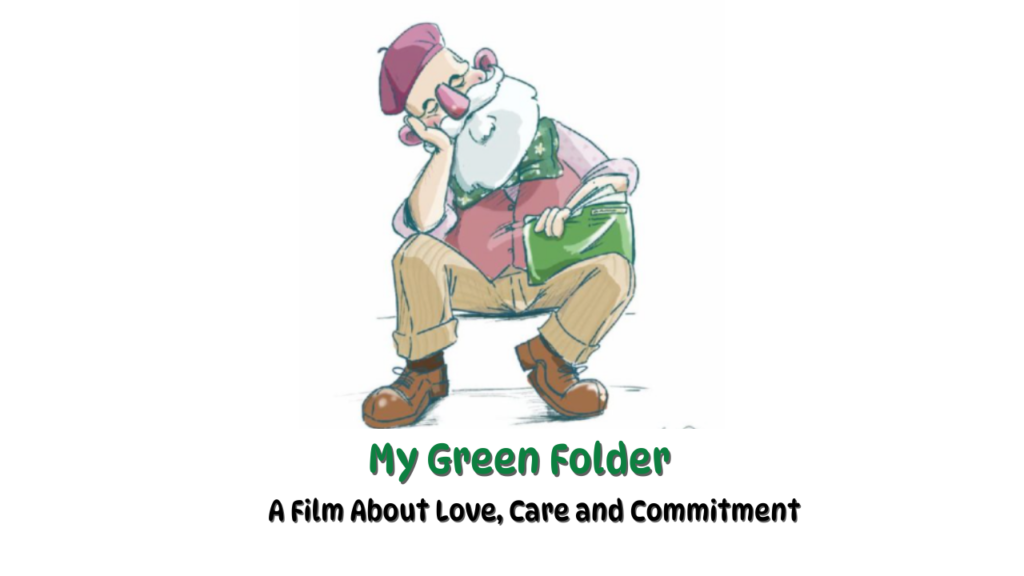Straight Talk About LGBTQ+ Care
LGBTQ+ Healthcare and Caregiving Challenges by Monica Stynchula from Credit for Caring
It is my honor to share my interview with Christopher MacLellan. Chris is a dear friend, fellow entrepreneur, and social worker dedicated to creating solutions to improve vulnerable people’s and their caregivers’ lives. He generously agreed to share his life and experiences as a gay man and caregiver.
Meet Christopher MacLellan

I was born and raised in St. Louis, MO., I have five older siblings, 25 nieces and nephews, and over 40 great-nieces and nephews who call me the F.U…Favorite Uncle! Now, what were you thinking?
I am confident I got my ‘care gene’ from my siblings, who always demonstrated to me what Love, Care, and Commitment is all about. I’ve been in the care space most of my professional career, and more intensely the last 15 years as a caregiver and caregiver advocate. Now, I am AgingGayfully.
When you are seeking care, what criteria do you use to select a provider? In particular, do you seek out providers who specialize in gay men’s healthcare?
Selecting a care provider can be challenging, especially when you are in a new city. What I’ve learned over the years is that the best information and referrals come from people who are in the trenches. That holds true when selecting a care provider. The LGBT community, even in its diversity, is a great source of information and referrals when seeking out care referrals. From Primary care physicians to specialists, and home health care, members of the community know who is welcoming, who is an ally, and who to stay away from. Even with creditable referrals, you have to do your due diligence (read health care provider bios, ask direct questions to the provider) so that you can feel comfortable talking to your health care provider about EVERYTHING.
Have you, personally, or know of others who feel discriminated leading to social isolation?
Unfortunately, yes…I have seen discrimination as a professional and I’ve experienced it personally in the most difficult caregiving situations one can ever imagine. I’ve had the privilege to work in a variety of social service settings that focus on the needs of the senior population, specifically LGBT Seniors. Social isolation amongst all seniors has a direct effect on the mental, physical, and emotional well-being of a person. LGBT Seniors are more likely to live alone, have limited resources, and not have the support of the family. This is one of the many reasons why it is important to have a healthcare provider who understands the unique needs of LGBT Seniors.
Do you believe that the mental health needs of the LGBTQ+ community are adequately serviced?
As a social worker, how do you guide others to culturally appropriate behavioral and mental health services? This is a tricky question as I believe there is a gap in mental health services for everyone in our county. Yet, the LGBTQ community is unique in a sense as there are LGBTQ community centers in most major cities across the country these centers provide a wealth of services and trusted referrals to the LGBTQ community to help them find the resources they need, and the information seek.
Caregiving is stressful and exhausting. Where did you find the support you needed during this time?
Blogging was my outlet as blogging introduced me not only to additional resources, but it was also cathartic. We met many people along the way that I’m still friends with today. I always suggest to caregivers to find an outlet that works for them. Blogging was my outlet and Richard was active with the blog as well. It was something we could do together.
Do you know of LGBTQ+ plus community members who live in residential care? Do you believe they are getting equal care and respect?
This is another hot-button topic in the LGBT community. Where can we age safely and how can we age in place? There is a fantastic documentary that was done 10 + years ago that addressed the needs and fears of LGBT seniors in residential facilities called GenSilent. I highly recommend everyone watch this documentary to understand the fears LGBT seniors have in residential care.
When selecting a care community, it is important to do your due diligence, visit many times ask the sales team about services for LGBT residents, and meet other LGBT residents. Residential care communities are always on the lookout to increase their census, be sure their services meet ALL of your needs.
Now switching to caregiving. You cared for Richard with love and dignity. Can you recall the earliest barriers to being accepted as his ‘spouse’ with the same legal and medical rights as a hetero spouse?
Since Richard and I were both out to our care providers and team, we experienced very little discrimination throughout our experience. However, early on in our caregiving journey, we did experience discrimination from emergency room physicians and staff wanting to know… such as “Who are you and why are you here”. Hetero couples would never be asked to prove their relationship in a care situation. That is why I always carried a Green Folder with me with all our legal documents in place to ensure that I had legal rights to Richard to combat any issues that could come up from a care provider who was not familiar with our history.
What community resources did you use during your caregiving journey? Why and why not?
Being a social worker myself, it was easy to tap into a variety of local, state, and national programs to help along the way. However, what was challenging for me was to take my professional hat off and apply it to a personal experience. Caregiving takes relationships to a new level and the emotional toll is different when you’re caring for someone you love, rather than trying to help a client in need.
Caregiving is stressful and exhausting. Where did you find the support you needed during this time?
Blogging was my outlet as blogging introduced me not only to additional resources, but it was also cathartic. We met many people along the way that I’m still friends with today. I always suggest to caregivers to find an outlet that works for them. Blogging was my outlet and Richard was active with the blog as well. It was something we could do together.
Tell me about your Green Folder Film Project

“My Green Folder” is a feature film based on the true story of Richard Schiffer and Chris MacLellan’s life experiences as a same-sex couple navigating the American health care and legal system before marriage equality became law. Richard and Chris had been partners for eight years when, in 2011, Richard was diagnosed with esophageal cancer, which propelled Chris into end-of-life care for his long-term partner. Their story was first documented in a 3-Part Pulitzer Prize-nominated story featured in the South Florida Sun-Sentinel, “In Sickness and In Health: A Couple’s Final Journey,” by journalist Diane Lade and photojournalist Carline Jean.
The paper trail of life begins with our birth certificate on the day we are born. There are many more forms to fill out as we move through the stages of life that help tell our story in an impersonal way. While our lives are more than a paper trail, in times of trial and tribulations, in sickness and health, in good times and in bad, our important life documents are the essential paper trail each one of us needs to receive the care we choose to have when faced with a life-threatening crisis.
Same-sex couples have always known the rules were different for them. With the real-life concern of being denied access to each other at a time of crisis, Richard and Chris carried their living wills, health-care surrogate forms, and power of attorney documents with them wherever they went in a bright “Green Folder” to prove to any unaccepting staffer their legal rights to each other. While marriage equality will never remove one’s bigotry, marriage equality and having “My Green Folder” levels the playing field for everyone.
You get three wishes for changing the caregiving landscape for the LGBTQ+ community. What are your wishes?
- Access to LGBT-Friendly Resources
- LGBTQ sensitivity training > mandatory
- No One Left Alone


Monica Stynchula is the Founder & CEO of REUNIONCare, Inc. a health information technology company REUNIONCare, Inc. an SBA certified Women-owned small business. Monica received her MSW and MPH from the University of Pittsburgh.
